Understanding Weight Loss
What Is a Weight Loss Program?
A weight loss program is a structured plan that helps individuals achieve their weight loss goals through a combination of:
Healthy eating tailored to individual needs.
Physical activity designed to support calorie expenditure.
Lifestyle changes that promote long-term success.
A good weight loss program should be sustainable, balanced, and customized to fit an individual’s health needs, preferences, and daily routine.
Additionally, commercial weight loss programs offer structured support and potential benefits, though they can be expensive and may not suit everyone’s needs.
Is a Weight Loss Program a Good Option for Me?
Losing weight can provide significant health benefits by reducing the risk of obesity-related health conditions, such as:
Heart disease
Type 2 diabetes
High blood pressure
Before starting a program, consult a healthcare professional to discuss safe and effective weight loss strategies.
Talk with Your Health Care Professional About Your Weight
Talking with your healthcare professional about your weight is an essential first step in choosing a weight loss program. During a general office visit, you can discuss the benefits of choosing healthy food and drinks, increasing physical activity, and the overall impact of weight on your health.
Here are some sample questions to ask your healthcare professional:
What are the benefits of choosing healthy food and drinks?
How can I increase my physical activity?
What are the risks of not losing weight?
What are the benefits of losing weight?
Your healthcare professional can help you understand the importance of these factors and work with you to develop a weight loss program tailored to your needs and preferences. They may also refer you to a registered dietitian or a specific program that aligns with your goals.
This personalized approach ensures that you receive the guidance and support necessary for effective weight loss.

Key Components of a Successful Weight Loss Program
Realistic Weight-Loss Goals
Setting realistic and achievable goals is essential for long-term success.
Aim to lose 5-10% of your starting weight within six months.
Work with a healthcare provider to create a personalized plan that aligns with your health needs.
Focus on gradual, sustainable weight loss rather than quick-fix solutions.
Maintaining lost weight requires permanent lifestyle changes, including self-monitoring, regular physical activity, and addressing potential relapses, as many individuals face challenges and may regain some or all of the lost weight.
A Healthy Eating Plan
A weight loss program should encourage nutritious, calorie-controlled meals while promoting balanced eating habits.
Choose whole, nutrient-dense foods over processed options.
Include lean proteins, healthy fats, fiber-rich foods, and whole grains.
Learn portion control and develop sustainable eating habits rather than restrictive dieting.
Annual rankings of weight loss diets can help identify plans that effectively promote balanced eating habits and long-term weight maintenance.
Physical Activity Plan
Regular physical activity is a key factor in weight loss success.
Aim for at least 150 minutes of moderate exercise per week.
Incorporate a mix of cardio, strength training, and flexibility exercises.
Find activities you enjoy to make exercise a habit rather than a chore.
In addition to aiding weight loss, regular physical activity offers numerous health benefits, such as improved cardiovascular health, enhanced physical mobility, and better management of chronic conditions like diabetes and obesity.
Guidance and Support for Adopting Healthy Habits
A strong support system can significantly improve motivation and accountability.
Look for programs with coaching, peer support, or accountability partners.
Engage in online or in-person weight loss communities.
Work with a healthcare professional or nutritionist for personalized advice.
Structured programs often include guidance on diet and exercise to effectively promote weight loss, providing the necessary support to achieve and maintain weight loss goals.
A Plan for Keeping the Weight Off
Maintaining weight loss can be challenging, but sticking with new lifestyle habits is key to long-term success. Strategies that may help prevent weight regain include ongoing support, regular physical activity, and healthy eating habits. Here are some tips to help you maintain your weight loss:
Ongoing Support: Engage in counseling sessions or support groups to stay motivated and accountable.
Regular Physical Activity: Incorporate exercise into your daily routine to help maintain your weight.
Healthy Eating Habits: Continue to make nutritious food choices and practice portion control.
Having a plan in place to maintain weight loss is essential. This plan should include regular monitoring of your weight, food intake, and physical activity. It should also provide opportunities for continued support and guidance, helping you stay on track and achieve long-term success.

Evaluating Weight Loss Programs
What to Look for in a Weight Loss Program
A reputable weight loss program should:
Encourage gradual and healthy weight loss rather than extreme dieting.
Offer long-term strategies for maintaining results.
Include expert guidance, such as nutrition counseling or personal coaching.
Be adaptable to your individual lifestyle and preferences.
What if the Program Is Offered Online?
Many weight loss programs now use the internet, smartphones, or other digital devices to help users achieve their goals. These digital weight loss programs, also known as virtual weight loss programs, are still being researched, but studies suggest that some virtual programs can be effective if they include key features such as:
A healthy eating plan that is low in calories
A physical activity plan
Guidance and support for adopting healthy habits
A plan for keeping the weight off
When considering an online weight loss program, it’s essential to look for these features to ensure the program is comprehensive and effective. Additionally, always talk with your healthcare professional before starting any weight loss program, especially if you have any health conditions. They can provide valuable advice and ensure that the program you choose is safe and suitable for your needs.
Warning Signs of Ineffective Programs
Avoid weight loss programs that:
Promise rapid weight loss (e.g., “Lose 20 pounds in a month!”).
Eliminate entire food groups or require extreme calorie restrictions.
Lack medical supervision or scientific backing.
Rely on expensive supplements or meal replacements instead of balanced nutrition.
Effective Strategies for Weight Loss
Increasing Physical Activity
Engage in cardiovascular exercises like walking, swimming, or cycling.
Incorporate strength training to preserve muscle mass.
Find ways to stay active throughout the day, like taking stairs or walking during breaks.
Behavioral and Lifestyle Modifications
Self-monitoring: Keep track of food intake, activity levels, and progress.
Portion control: Learn to recognize appropriate serving sizes.
Mindful eating: Avoid distractions while eating and focus on hunger cues.
Incorporating these strategies can also help prevent unwanted weight gain through effective behavioral and lifestyle modifications.
Nutritional Strategies for Weight Loss
Hypocaloric Diets: Reduce overall calorie intake while maintaining nutritional balance.
High-Fiber Diets: Consume fiber-rich foods like fruits, vegetables, and whole grains.
Meal Replacements: Consider structured meal replacement options if needed.
Managing body weight through these nutritional strategies is crucial for overall health and can help prevent excess body fat gain.
Support Systems for Weight Loss
Counseling and Psychotherapy Services
Emotional and psychological support can help address underlying eating behaviors.
Cognitive behavioral therapy (CBT) can be useful for long-term weight management.
Family Support
Having spouse or family involvement can improve success rates.
Families can help reinforce healthy habits and create a supportive home environment.
Online and Community Support Groups
Digital platforms and social networks can provide motivation and accountability.
Weight loss apps offer tracking tools, forums, and expert advice.
Medical Interventions for Weight Loss
Prescription Weight Loss Medications
Some individuals may benefit from prescription weight loss drugs, which work by:
Reducing appetite.
Increasing metabolism.
Limiting fat absorption.
Our team of experts at Mixx Health and Wellness can help ensure that you find the right weight loss medication for your needs. We offer a free consultation as well, so set one up today, and find the perfect weight loss option for you!
Weight Loss Surgery
For individuals with severe obesity, bariatric surgery (such as gastric bypass or sleeve gastrectomy) may be an option.
Surgery should be considered only after other weight loss efforts have failed.
It requires long-term lifestyle changes for sustainable results.
Choosing the Right Weight Loss Program for You
Which Program Is Best for Your Lifestyle?
Choose a plan that includes foods you enjoy and is nutritionally balanced.
Look for programs that offer flexibility and adaptability.
Avoid fad diets that promise extreme results in a short period.
Is Counseling Part of the Program?
Research shows that structured programs with expert coaching lead to higher success rates.
Programs that include counseling or behavioral therapy improve long-term adherence.
Is Physical Activity Included?
Exercise is essential for maintaining weight loss.
Find a program that incorporates a realistic fitness plan.
Losing Weight Safely and Effectively
Prioritize healthy eating by learning portion control and meal planning.
Increase physical activity to sustain weight loss.
Focus on long-term changes rather than temporary diets.
Frequently Asked Questions
What is the most effective weight loss program?
The best program is one that fits your lifestyle and promotes sustainable weight loss.
What is the best diet plan for weight loss?
Plans like WeightWatchers, Noom, and the Mayo Clinic Diet focus on balanced nutrition and behavioral changes.
What is the most effective way to lose weight?
A combination of healthy eating, exercise, behavior modification, and medical guidance.
What Are Good Weight Loss Programs? Top Options for Effective Results Conclusion
Choosing the right weight loss program requires finding a sustainable, evidence-based approach that fits your lifestyle and goals.
Consulting a healthcare professional can help ensure safe and effective results. Our team of experts at Mixx is always ready to answer any weight loss questions you may have!

